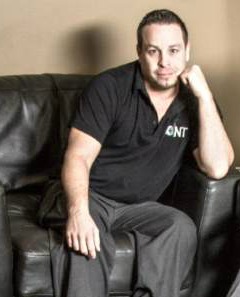Reached this morning about the lottery results for pot retail stores announced by the state Liquor Control Board on Friday, entrepreneur Shy Sadis was on his way to meet with a couple of lawyers. Their intended subject of conversation: suing the LCB over winners who “gamed the system.”
Sadis, as you might have guessed, lost in the lottery that determines which of the more than 1,000 applicants will get licenses to open stores throughout the state. Profiled in a SW cover story last November on the people jumping on the I-502 bandwagon, Sadis applied for licenses to open three stores– in Bellingham, Tacoma and Snohomish County–but drew numbers too low to get a shot. (A luckier SW profile subject was former Microsofite Jamen Shively, who had lain low after a bout of bad press but now, having pulled a just-high enough Seattle number, is on track to open a store in SODO.)
The state has allocated a limited number of licenses for each jurisdiction around the state. Seattle, for instance, is allowed 21. The state also limited the number of licenses each business could hold to three.
Sadis says he thought about asking other people he knew to act as “straw” applicants who would apply for licenses on his behalf under their names, thereby increasing his odds of getting picked. “I could have had my mom, my brother, my uncle, my cousin apply.” He says, however, that he was told by the LCB that doing so would be “defrauding the system. So I did the right thing. Turns out, that screwed me.”
While he submitted only three applications, he contends many others went the straw applicant approach. How does he know? He asks me to look at the lottery results for Snohomish County. In the number one spot is a business whose intended pot store is to be located at 16530 State Route 9 SE. Now look at the number three spot, he instructs. That business uses the same address, as do businesses in fifth, seventh and 22nd place.
Prominent pot attorney Robert McVay cautions that multiple sightings of the same address don’t necessarily indicate straw applicants. “I’m guessing an enterprising landlord put out an ad on Craigslist: Hey, you need an address? Pay me $500 or $1,000 and the one who wins [the lottery] gets the lease.”
Even so, McVay speculates that some people probably did use straw applicants. The LCB required businesses to submit the name of only one owner before the lottery. It’s only the winners who must go on to declare all “parties of interest” in their concerns as they undergo a more thorough vetting process. So if your mom won, you can now declare yourself a co-owner.
McVay opines that this is not, technically, against the rules, and he may be right. While he says he’ll have to look into it further, LCB spokesperson Brian Smith’s hazards that the board never said that you could submit only three applications, just that you could get only three licenses in the end (although this contradicts what Sadis says he was told).
If Sadis goes through with his threat, that may be up for a judge to decide.
More lawsuits may be on the way. McVay says some of his clients—the ones who aren’t ecstatic over winning—are upset over other perceived “dysfunctions in the system.” Among them are entrepreneurs who were thrown out of the lottery after being told that their locations violated the 1,000-foot rule (the distance pot businesses must keep away from schools and other sites frequented by children), only to ascertain later that they in fact were far enough away.
McVay, who works with another well-known cannabis attorney named Hilary Bricken, says his firm, Harris Moure, hasn’t yet decided whether to go after the LCB on behalf of its disgruntled clients. “It’s not that I don’t want there to be fairness in the process, but we have clients who did this the right way,” he says, adding that he doesn’t want to see “their dreams put on hold” by contentious litigation.
UPDATE: After checking with the LCB’s marijuana licening manager, Smith reports that “an applicant could apply for as many spots as he/she wanted.” This is undoubtedly going to come as big news to some people, who operated on a contrary assumption.








